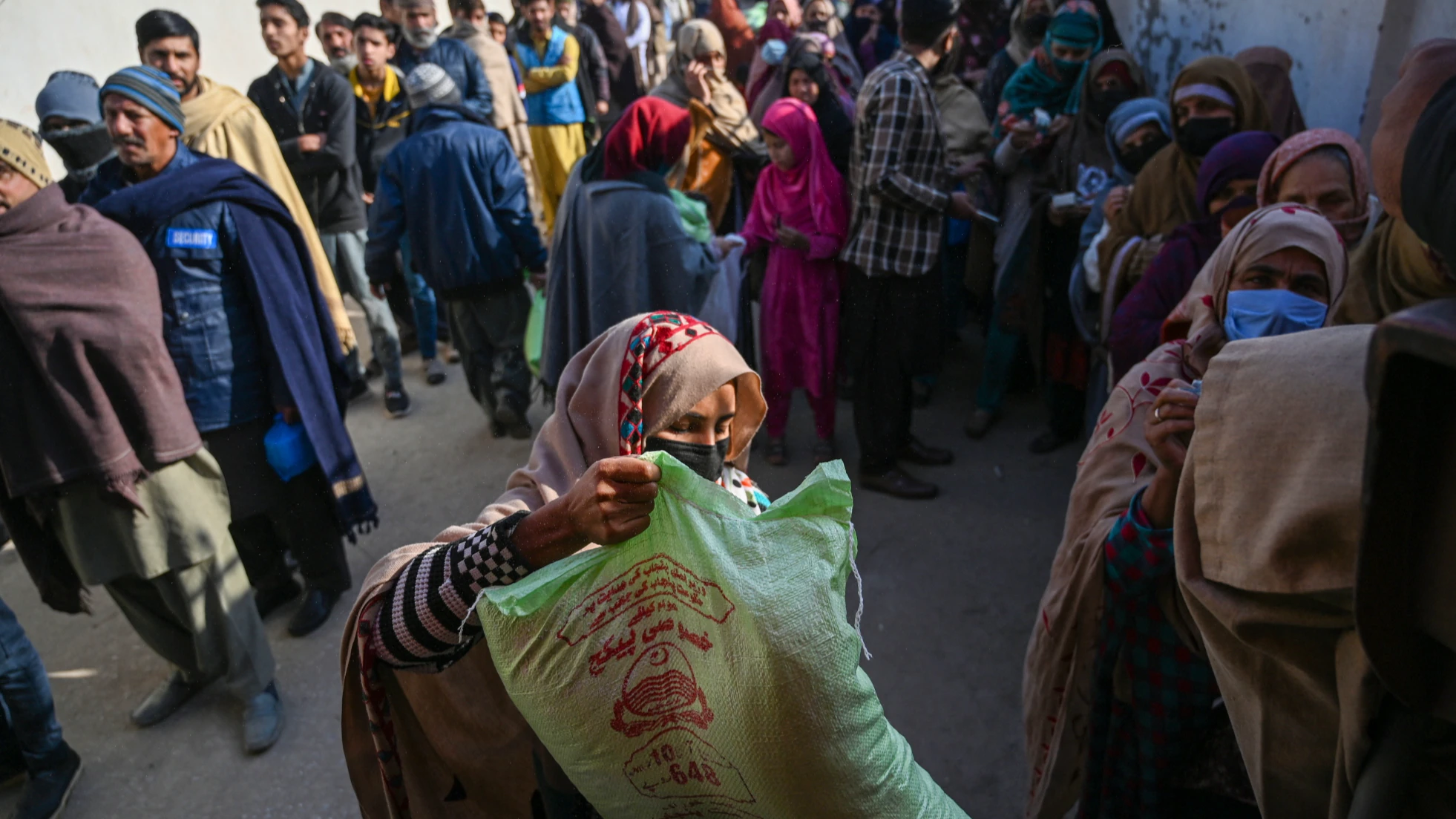
While terrorism and suicide attacks send wrong signals to the world from Pakistan, adding to its severe economic woes is skyrocketing inflation and price rise of daily commodities.
This week, the tale of misery added one more grey shade to its already darkened tone with people fearing a possible shortage of wheat flour in the upcoming days amid the ongoing strike called by millers who are demanding the withdrawal of the newly imposed withholding tax on flour products in the budget 2024-25.
Wheat grinding and flour supply was disrupted across the financially-hit nation as protests led to the closure of flour mills across Sindh province.
To make things worse, daily wage labourers, who were working the mills, have been left without work and income.
The local flour production system was also impacted after Chakkis (small wheat grinding units) in various cities of Sindh, including Hyderabad and Sukkur, joined the strike to show solidarity.
The alarming situation became apparent when Rauf Ibrahim, Chairman of the Wholesale Grocers Association, told The Express Tribune that there is currently only a two-day stock of flour available in the wholesale market.
What led the owners to call a strike?
As per an Editorial published in Dawn News titled ‘Looming flour shortage’, the flour mill owners are demanding that the government revoke its decision to declare them ‘withholding tax agents’ for the collection of 2.5pc advance tax imposed across the retail supply chain.
They are demanding authorities to directly collect tax from retailers and other players in the chain.
“The imposition of withholding tax on the retail supply chain in the budget for the present fiscal year, rather than taxing traders directly as is the widespread demand, underlines the deep-rooted problems of inequity and unfairness plaguing our inefficient tax administration,” the editorial said.
The newspaper believes that the shortage of flour will leave middle-income and lower-income households in a ‘ calamitous’ state who are already fighting the rising inflation.
These families are also burdened by heavy direct and indirect taxation owing to the tough fiscal adjustments being made to meet the requirements of another IMF bailout.
Slamming the Pakistani government for leading to the crisis, Dawn News said in its Editorial: “By not directly taxing traders and many other segments of the population, the government has again made a bad policy decision and pushed itself into a blind alley.”
“What options would the authorities be left with if flour millers refuse to budge from their position? In that scenario, it might allow them to implicitly pass on the cost to the unfortunate consumers through a price increase,” the Editorial further said, lamenting the hardships people are facing in the nation.
The flour mills association sources rang an alarm bell when they warned as quoted by The News International that it was feared that the commodity would go scarce if the deadlock between the government and association persisted.
Meanwhile, amid the nationwide millers’ strike, the Shehbaz Sharif government on Friday revoked its March order, banning the export of flour made from imported wheat.
“At the same time, a ban on wheat imports was imposed, which came too late for the country, particularly for farmers in Punjab who were protesting against unnecessary wheat imports despite a bumper crop,” reported Dawn.
Pakistani citizens voted earlier this year with the hope that a new government will bring stability to the nation,
Four months have passed but signs of recovery and relief seem to be a distant dream for the people of Pakistan.
The plight of people and their opinions were reflected in the article written by economist Miftah Ismail in The News International: “Our daily economic life has become so bad that people are not just questioning the legitimacy (or lack thereof) of the current government but questioning whether we have actually benefited from any government over the last few decades.”
” And if our governments haven’t been able to benefit us, what’s the point of having a government and paying taxes?” he wrote.
(ENDS)






